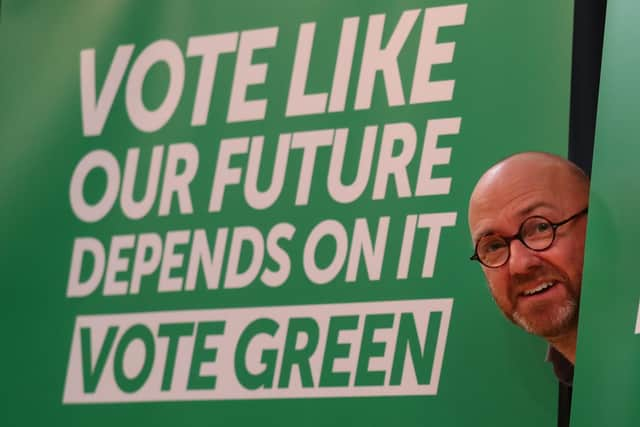Scottish independence: Post-independence Universal Basic Income 'more affordable' than current benefits despite costings not done since 2014, say Greens
This article contains affiliate links. We may earn a small commission on items purchased through this article, but that does not affect our editorial judgement.
The universal basic income – a policy that would see everyone provided with a guaranteed income regardless of circumstances – is a central “pillar” of the Scottish Green’s case for independence. However, the figures for its cost have not been updated since the 2014 independence referendum.
The admission from co-leader Patrick Harvie came as the Scottish Greens launched their first ‘Green Yes’ paper at Dynamic Earth in Edinburgh on Monday. The paper, 14 pages long with fewer than 1,000 words over five pages on policy, is the first of a series from the party as it seeks to set out its version of an independent Scotland.
Advertisement
Hide AdAdvertisement
Hide AdThe lack of detail was labelled “embarrassing” by critics, with key issues such border arrangements and currency not mentioned in the booklet. Speaking to reporters after the launch, Mr Harvie was pressed on the lack of detail.


He said: "This is the beginning of our series of papers. It’s intended to be a reintroduction to the Green Yes campaign and to inspire people with the possibilities. Over the course of the campaign we’ll publish more detailed policy documents about some of the specific aspects. I think it’s quality, not quantity, isn’t it.”
Pressed on the plans for a universal basic income, Mr Harvie repeatedly claimed the policy would be more affordable than the existing social security system. However, he admitted the party had not costed the policy since 2014.
Asked how he could then claim such a policy would be more affordable for taxpayers, the co-leader said: “The point is that the poverty and inequality that result from our current, inadequate social security system, which is full of holes, is more expensive for society to manage. The argument for a UBI is about a safety net that actually works that doesn’t create those additional costs."
Mr Harvie also suggested an independent Scotland could join the euro as soon as a decade after independence. But he said the Scottish Green preference was for Scotland to have its own independent currency “as soon as that’s achievable”.
He said: “Over the longer term, the option would be there for Scotland. If we join the EU as I hope and believe we will, obviously it is entirely up to a future Scottish Government to decide that they might want to align and start meeting the tests for Euro membership.
"I don’t think that is a priority at the moment. I think very clearly the first steps that you would need even if you wanted to consider that possibility in ten, 20, 30 years’ time, is to have an independent currency that is viable and allows us to make decisions about our own economy.”
Mr Harvie also rejected the suggestion the Scottish Greens setting out their own case for independence was undermining the Scottish Government’s official case for independence. He said: "I don’t think the idea of political parties setting out their own stall undermines the potential for co-operation on genuine common ground. That’s what the Greens’ role in the Scottish Government has been focused on – finding the genuine common ground without ever pretending that we don’t disagree about some specifics.”
Advertisement
Hide AdAdvertisement
Hide AdCritics attacked the party for launching the paper on the first day of COP27 in Egypt and for the lack of information around key pledges.
Scottish Conservative constitution spokesperson Donald Cameron said the document was “woefully light on detail” with “simply unaffordable” pledges. He said: “The Scottish Government’s own estimates show that a Universal Basic Income would cost up to £58 billion per year. Like the Greens’ plans for a four-day week, it is divorced from reality.”
Mr Cameron added: “Like the SNP, they have no credible answers on what an independent Scotland would look like and are trying to pull wool over voters’ eyes with plans that would be economically devastating.”
Alex Cole-Hamilton, the Scottish Liberal Democrat leader, labelled the “pamphlet” an embarrassment. He said: “It's embarrassing that the Green Party are expecting the public to vote to break up the UK on the basis of 13-page pamphlets that don't even mention what currency they want to use.”
Want to hear more from The Scotsman's politics team? Check out the latest episode of our political podcast, The Steamie.
It's available wherever you get your podcasts, including Apple Podcasts and Spotify.
Comments
Want to join the conversation? Please or to comment on this article.
